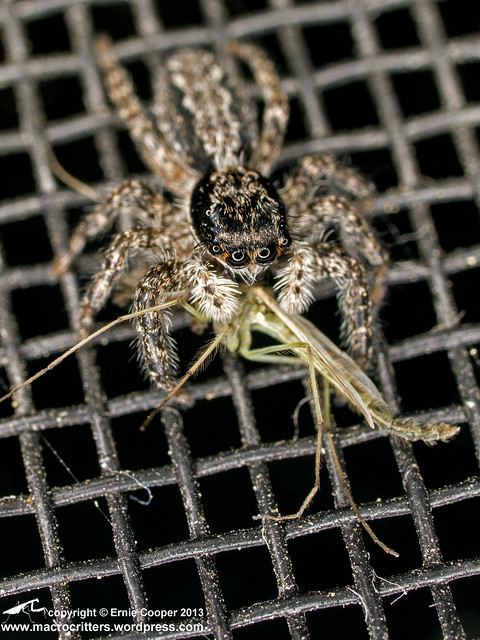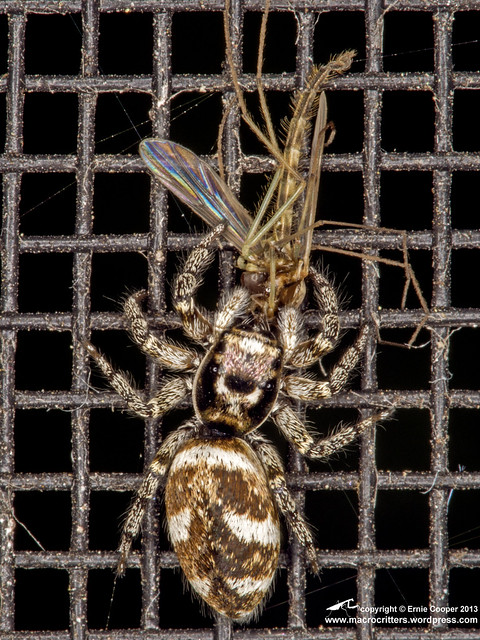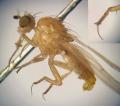Diptera.info :: Identification queries :: Other insects, spiders, etc.
|
Zebra jumping spiders munching on mosquitoes (pics)
|
|
| Ecooper |
Posted on 10-07-2013 23:23
|
|
Member Location: Posts: 45 Joined: 09.08.12 |
I’ve been taking photos of zebra jumping spiders (Salticus scenicus) that have been hunting mosquitoes on the screen door to my kitchen. These spiders are really endearing in their movements and “attitude”...it’s too bad they are so tiny. Imagine how much fun they would be if they were the size of a tarantula!  Males of the species are apparently darker in colour, so I believe that the first photo below is of a male, and the second is a female. If anyone can confirm that, please let me know. There are more photos of each specimen on my blog. Olympus OM-D E-M5 camera; Zuiko 35mm macro lens; manual exposure (F8-F11 @ 1/200 sec); Olympus RF-11 ring flash (1/8-1/4 power); ISO: 200 Cheers, EC www.macrocritters.wordpress.com  P7040536 2 jumping spider on screen ernie cooper 2013 by ernie.cooper, on Flickr P7040536 2 jumping spider on screen ernie cooper 2013 by ernie.cooper, on Flickr P7110479 jumping spider screen 2 ernie cooper 2013 by ernie.cooper, on Flickr P7110479 jumping spider screen 2 ernie cooper 2013 by ernie.cooper, on Flickr |
|
|
|
| John Carr |
Posted on 11-07-2013 02:26
|
|
Super Administrator Location: Colorado, USA Posts: 10570 Joined: 22.10.10 |
Your mosquito is a non-biting midge, tribe Chironomini. |
| Ecooper |
Posted on 11-07-2013 05:01
|
|
Member Location: Posts: 45 Joined: 09.08.12 |
John Carr wrote: Your mosquito is a non-biting midge, tribe Chironomini. Mea culpa There is a quote circulating on Facebook that basically says that you are doing science wrong if you don’t make mistakes; that you are doing science really wrong if you don’t correct those mistakes; and that you aren’t doing it at all if you don’t accept that you’re mistaken. Not only did I misidentify the midge, but it turns out that the darker spider is not a male zebra, it is actually a different species: Platycryptus (probably P. californicus). Sigh. I have re-edited my blog and corrected these mistakes. I must be doing GREAT science! Thanks very much for the help John, I acknowledged your assistance and referenced this forum in my blog. It’s interesting that two very similar species, one introduced and one native, were feeding on the same prey within inches of one another. I wonder whether the two species avoid each other (given their great vision) or if one ever preys on the other? Cheers, EC www.macrocritters.wordpress.com |
|
|
|
| Jump to Forum: |













